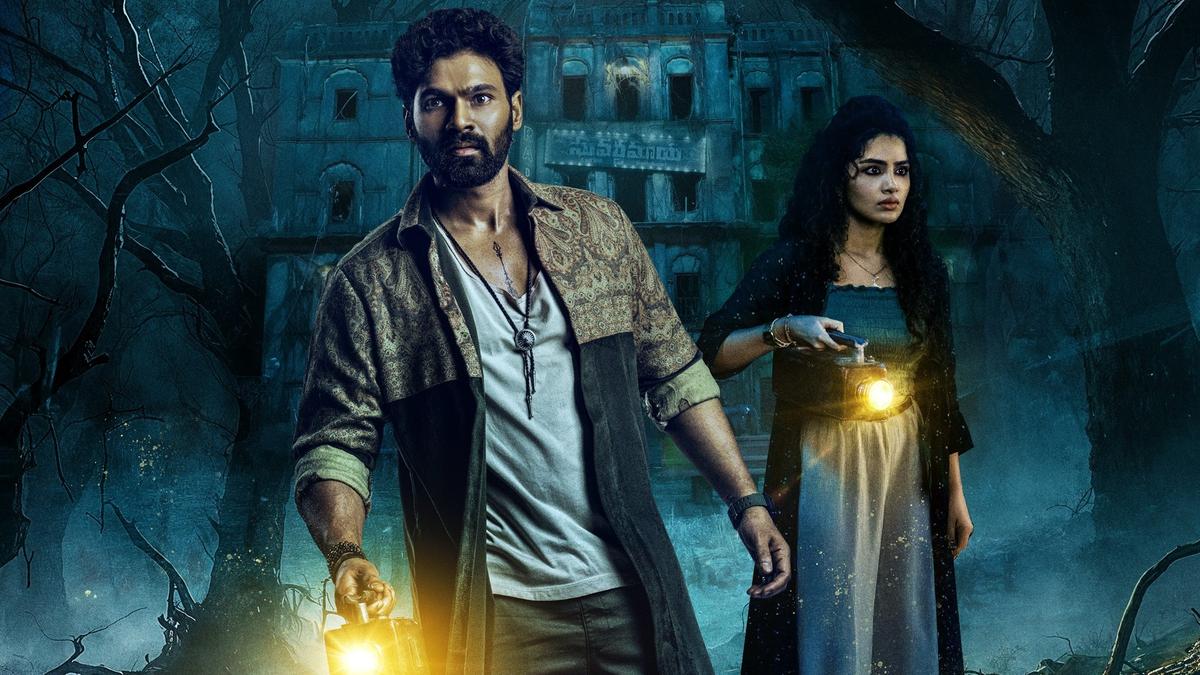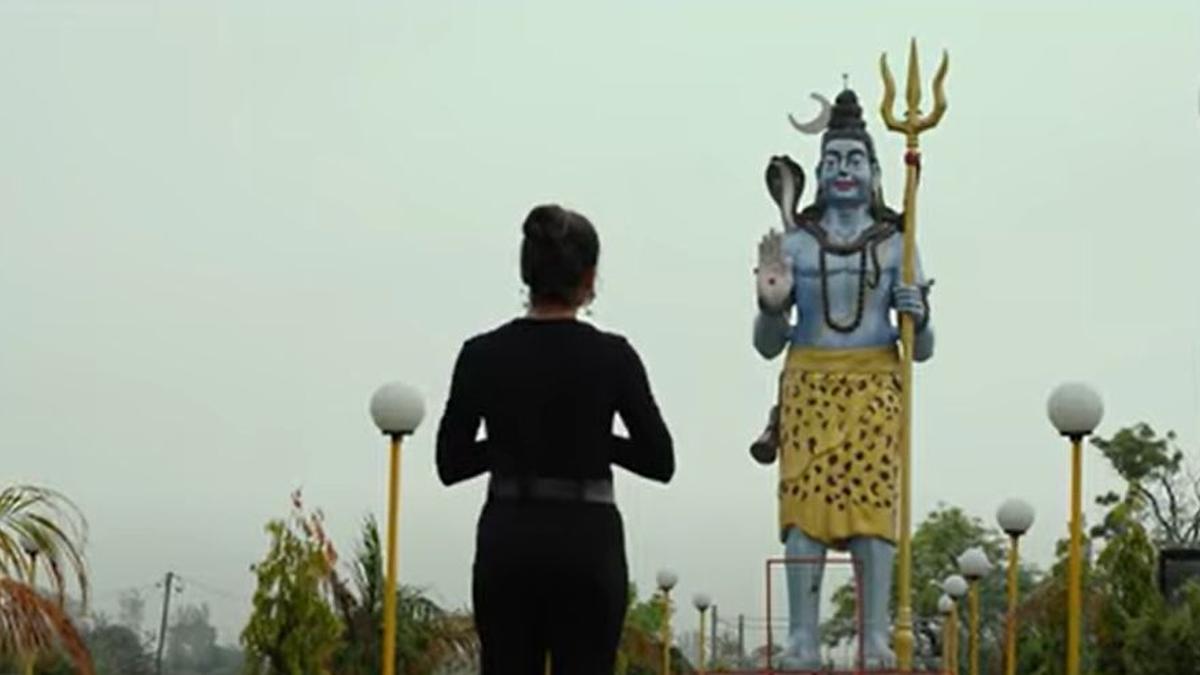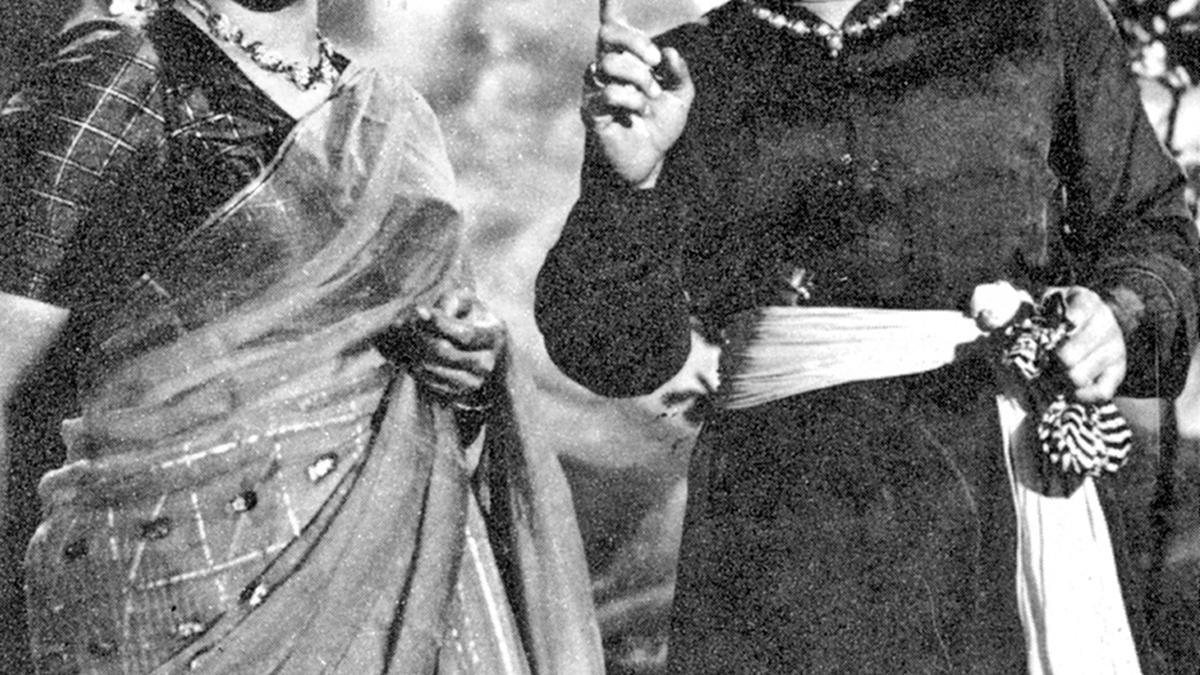While watching Mirai, I was occasionally reminded of actor Teja Sajja’s earlier film Hanu-Man. That superhero fantasy by director Prasanth Varma, set in a fictional world, drew on devotional texts while borrowing familiar tropes from the genre. Its engaging characters and emotional depth made audiences root for the underdog hero.
This time, the canvas is wider, with a larger budget. Cinematographer-director Karthik Gattamneni, who co-wrote Mirai with Manibabu Karanam, crafts a striking visual aesthetic with production designer Nagender Tangala, art director Dasireddy Srinivas, and a skilled visual effects team. Yet beneath the spectacle lies a story that finds its footing in parts, and that makes all the difference.

Indian epics are rich with fantasy steeped in devotional fervour — gods, demons, worlds on the brink of darkness, and the triumph of good over evil. What matters, however, is translating such tales into emotionally resonant storytelling for the screen.
Mirai (Telugu)
Director: Karthik Gattamneni
Cast: Teja Sajja, Manchu Manoj, Ritika Nayak
Runtime: 168 minutes
Storyline: A superhero has to rise to protect the ninth granth, and the world, from being taken over by a dark force.
Mirai begins with promise, using animation — and perhaps AI — to establish its world. The story traces back to emperor Ashoka, distraught after the Kalinga war. Legend speaks of a secret society guarding nine granths — books of immense power — that could destroy the world if seized by evil forces. The clique succeeds until a dark power rises, threatening the world’s equilibrium.
On paper, the tale has intrigue: sage Agasthya, a circle of sadhus who know the truth, a mother with visions of destruction, and her son, destined to be the chosen one. Yet as multiple characters appear in disparate settings, Mirai falters for more than an hour. Much is said about the looming threat to the granths, but the urgency is never convincingly built. The chosen one must be found, told of his destiny, and dispatched on an epic quest, but the narrative skims the surface.
When several guardians fall swiftly to the evil force (Manchu Manoj, wielding a cursed black sword), the impact is oddly detached. Aside from Jagapathi Babu’s gravitas as the elder, the rest hardly feel like worthy protectors. Vibha (Ritika Nayak), a young sadhvi, tracks down Veda (Teja Sajja) with implausible ease, stumbling from Varanasi to Kolkata to Hyderabad as though the film were racing towards its climactic clash.
Veda lives in a scrapyard modelled on the dystopian Kashi of Kalki 2898 AD. The thrill of superhero films lies in imaginative world-building — Gotham of Batman, Anjanadri of Hanu-Man, Lokah’s alternative Bengaluru, and Kashi-Shambala of Kalki. But here, the “paradise scrapyard” feels more like a set than a lived-in universe. The interactions between Vibha and Veda are perfunctory: her mind-reading, his banter with friends, and bumbling cops witnessing the supernatural never ground the story.
Veda’s Himalayan quest for the mystical staff, the mirai, unfolds too easily. His meeting with sage Agasthya (Jayaram) and initiation into the staff’s power are hurried, not underwritten by depth. Only later, when the dark force’s backstory and the mother–son arc fully emerge, does the film find its footing. Teja Sajja, with his everyman appeal, balances strength and vulnerability, excelling in the action. Manoj has the physical menace for the antagonist. Shriya Saran is the revelation, embodying the conflicted mother with emotional weight especially in the later portions.

Scattered through Mirai are flashes of invention — the animatronic bird Sampati from the Ramayana and sage Agasthya’s notion of “spiritual physics” add wonder and spectacle, complemented by Gowra Hari’s music. The climactic clash delivers visual grandeur, though the journey there feels thin.
Telugu cinema has long mined mythology with sincerity, crafting layered characters and strong arcs. Even the recent Kalki2898 AD blended the Mahabharata with science fiction inventively. Mirai, though ambitious in reframing an Indian superhero saga, struggles to anchor its spectacle in compelling storytelling. The stage is set for a sequel, but it will require a more engaging narrative.

 2 hours ago
1
2 hours ago
1





















 English (US) ·
English (US) ·